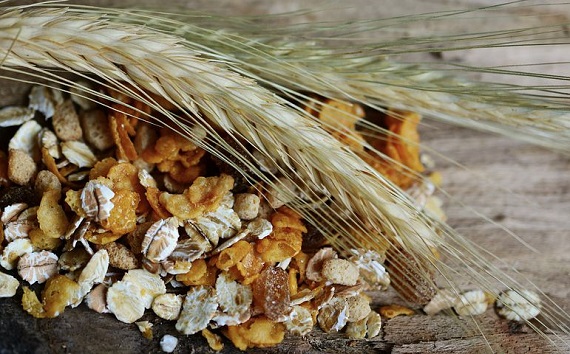Eating wholegrain foods is easier than it might seem; there are a variety to enjoy every day from bread to cereal, rice and pasta. Scientists have shown that people who eat more wholegrains have a lower risk of developing some cancers, type 2 diabetes, heart disease and strokes.
Wholegrains contain all the nutrients and goodness a grain provides because the grain is still intact and nothing has been removed. White or refined foods are stripped of most of the nutritional benefits during processing because the bran and germ, which contain B vitamins and fibre, are removed leaving the endosperm which mainly consists of carbohydrate and proteins. Wholegrains are rich sources of fibre, carbohydrate, B vitamins, vitamin E, magnesium, iron and zinc compared to their white alternatives. Wholegrain foods take longer to digest than their white alternatives, therefore they may help us feel fuller for longer.
So why not try increase the wholegrains in your diet?
- Kick-start your day by choosing a wholegrain cereal for breakfast such as a bowl of porridge, no added sugar muesli or wholemeal toast.
- For lunch why not try a sandwich made from wholemeal bread, a quinoa salad or accompanying a bowl of soup with a wholemeal roll.
- If you are feeling peckish in-between meals try wholegrain snacks such as popcorn (just watch out for sugar and salt!).
- At supper time swap your white pasta for wholewheat, white rice for brown and try different grains such as freekeh, bulgur wheat and spelt.
- If you do not like the taste of wholemeal or brown varieties you can buy 50:50 versions of foods like pasta and bread; this way you are still getting some of the nutritional benefits of wholegrains into your diet whilst enjoying the taste.
You should increase your wholegrain intake gradually, if you increase it quickly you could experience digestive discomfort (such as wind and bloating) and at the same time ensure your fluid intake is sufficient to help with bowel movements.
Consuming wholegrains alongside a wide variety of fruit, vegetables and pulses will help you on your way to getting the recommended fibre intake of 30g a day - in the UK adults are currently getting around 18g!


